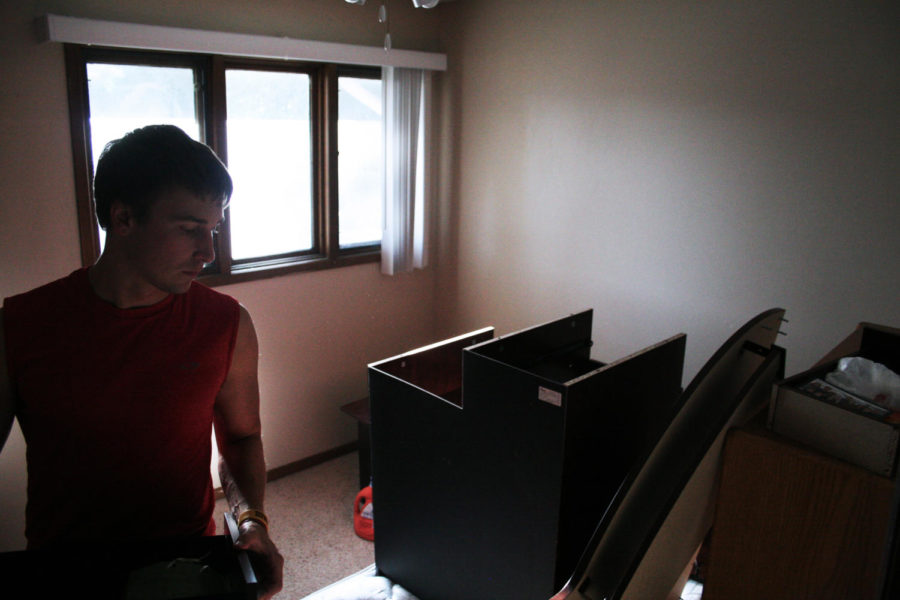Editorial: Students stranded by apartment leases
Depending on friends and storage units, students are forced to scatter their belongings among their space as they camp out on the couch for a few days waiting to move in to their next living estate.
August 1, 2013
College students are nomadic creatures by necessity. Moving from high school hometown to campus is the first move most experience, one that may relocate an individual a few scant miles or all the way across the world. From there, we students travel back and forth from home to campus for vacations and holidays several times a year.
At the end of the year, a student may relocate yet again to a job or internship, and when they return to school they move from dorms to apartments. With all this relocation, it’s no wonder most students don’t get too attached to any one location.
However, the dangers of such a nomadic lifestyle surface when a situation arises when an individual has no place to call home. At the end of a semester or in the weeks before the beginning of an internship, a student may be forced to crash on the couches on his or her closest friends, clogging their living rooms with cardboard boxes and bins.
Such is the case with students who move between apartments and find themselves stranded for a number of days between leases.
Obviously, if someone is living in one apartment and will continue to live there for the next lease year, there is no need to move out. However, many students who sub-lease over the summer or decide to move to a different apartment run into trouble.
Maybe being forced to sleep on couches and to move all your belongings isn’t exactly the worst fate for a college student, but it’s irritating and time-consuming, as well as potentially avoidable.
The easiest “fix” to the problem is for students to be aware of it before signing a lease. Instead of simply assuming everything will work out, examine the details of the lease, especially move-in and move-out dates. If a person’s lease has a move-out date of July 24 but they don’t move into a new apartment until August 6, then he or she should be planning ahead for potential solutions, or find different leasing options.
A harder solution to the “homeless student” situation is to improve communication between leasers and those who run the apartment complexes. In many cases, the reason for the early move-out date is so the apartment management has time to have carpet cleaners come in and undo the damage done throughout the lease year.
Undoubtedly, it’s easier for carpet and floor cleaners to do their job if absolutely everything and everyone is out of the apartment. However, it’s not entirely necessary. If apartment management and leasers could schedule a couple days at the beginning of a lease for cleaners to come through (and for all leasers to be out of the way) then the handful of “homeless” days could be avoided.
At this point, such a solution isn’t in the immediate future. Many larger complexes will be resilient to the pleas or negotiations of leasers. But without awareness and negotiation, the problem will never be solved. Apartment management in Ames needs to be aware that leasers are unhappy.
But in the meantime, the best thing to do is find a kind friend with a comfortable sofa.

















